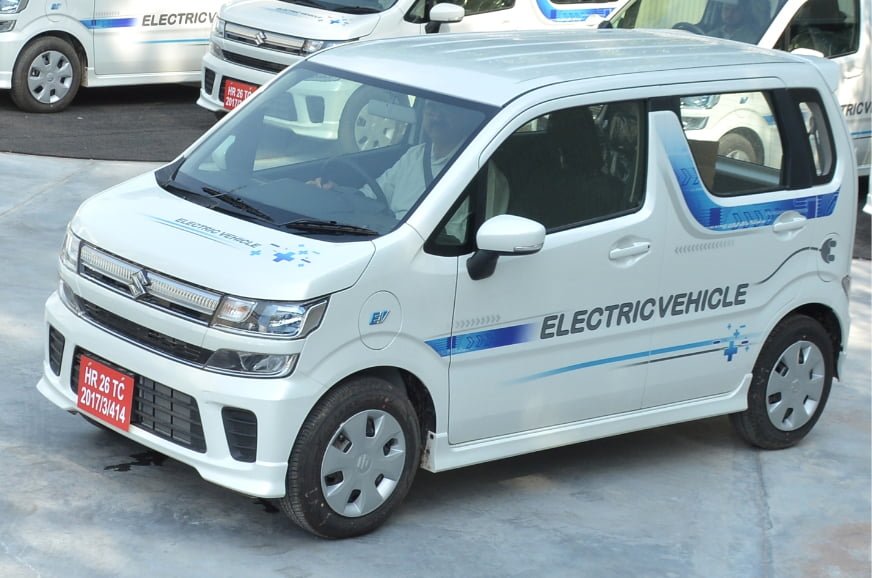The upcoming Maruti Suzuki EV is currently under testing and has been spotted various times. It will reportedly cost up to Rs 12 Lakhs on-road.
Maruti Suzuki has successfully started testing its EV across the country. The test mule is Japanese-spec WagonR, which is just used for testing purposes. The EV will most likely be the recently launched WagonR.
The manufacturer has stated the poor infrastructure for EVs in India, to be a big reason for high prices. Most of the electric scooters or cars are priced much higher than their petrol-powered counterparts.

The earlier expected cost was up to Rs 10 Lakhs only. The company has further stated that the cars which are now priced around Rs 5 Lakhs, will cost up to Rs 12 Lakhs in their EV versions.
Also Read: Maruti Suzuki Baleno Smart-Hybrid launched with BS-6 Engines
Manufacturers had their hope on the Fame-II scheme, which was supposed to bring down the prices of EVs. However, no subsidy benefits are provided for private owners. Only taxi and commercial EVs will be able to avail the benefits.
Another problem arises due to the lack of infrastructure in India. Most of the vehicle owners do not have an enclosed parking or basement parking. If their car or scooter is parked out most of the time, how will it be charged?
While many two-wheeler companies are equipping their scooters with detachable batteries. But in a four-wheeler, the batteries are very heavy and almost impossible to remove.
Last year, the government lowered the GST rates for Lithium-ion batteries from 28% to 12%. Other than that, there is no relief for private buyers.
Also Read: Mahindra XUV300 electric spied testing in India- Images
Maruti Suzuki EV will reportedly offer a real-world driving range of 130 kms. It is much higher than that of Tigor and Verito EV, which offer nearly 80-90 kms of range.
Maruti Suzuki EV will support the standard AC charger as well as a DC charger, making it flexible. The standard charger will take nearly 7 hours to fully charge the battery and the Fast charger will take nearly one hour for 0-80% charge.

